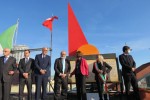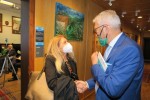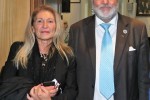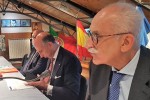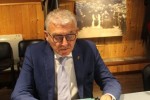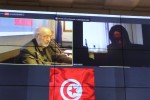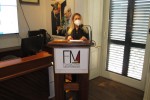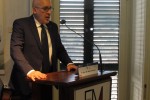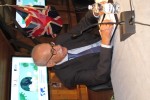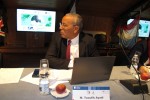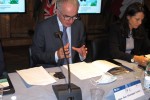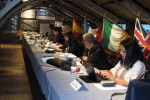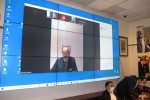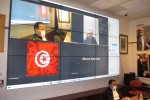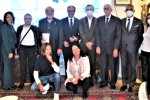2021 (EN)
|
27 October 2021
Tutte le Attività (EN) -
Anno 2021
 The international conference entitled "Islamic Arts in Campania" was held in Naples, at the headquarters of the "United States of the World" and the "Museum of Peace - MAMT" (World Heritage Site), on 27 and 28 October 2021.
The international conference entitled "Islamic Arts in Campania" was held in Naples, at the headquarters of the "United States of the World" and the "Museum of Peace - MAMT" (World Heritage Site), on 27 and 28 October 2021.
The event was held in both telematic and in-presence modes.
The conference was organised by the Fondazione Laboratorio Mediterraneo Onlus with the collaboration of ACLI Beni Culturali, ACLI Regionale Campania and ACLI Provinciale Napoli, with the aim of promoting initiatives and events related to the dissemination of Islamic culture in the Campania region.
The aim of the conference was to enhance the history of the Campania Region, which is rich in historical, literary and artistic references dating back to the period of the Arab presence in the area. The idea behind the project was to bring out these connections between the territory and Islamic art and to create an international meeting aimed at promoting the Islamic cultural wealth present in the Campania region.
In addition to enhancing the artistic cultural heritage, the conference was an ideal instrument to disseminate Islamic culture from different perspectives: a model of action for the peaceful integration of all cultures as well as publicising the region's artistic heritage wealth.
During the two days of work - also thanks to the extraordinary high-definition films dowry of the Museum of Peace - MAMT - a 'journey' was undertaken through the historical-artistic Islamic architectural heritage present in Italy and in Campania to tell the intertwined stories between Christianity and Islam and between West and East through a series of engaging iconographies.
"The enhancement of cultural heritage," said Prof. Michele Capasso, President of the Fondazione Laboratorio Mediterraneo Onlus, "is a privileged asset for sustainable development, tourism and innovation of the 'country system'. Design for cultural heritage, together with the presentation of workshops, can offer the means to network and make this little-known heritage usable".






